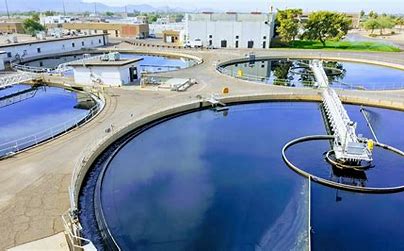
Importance of Water Recycling
Introduction
Water recycling plays a crucial role in addressing the growing water scarcity issue and ensuring a sustainable future. This article explores the historical background, key concepts, and main discussion points related to wastewater treatment and water recycling. By understanding the significance of these topics, we can appreciate the importance of wastewater treatment in achieving efficient water management.
Historical Background
Throughout history, civilizations have recognized the importance of treating wastewater for reuse. Ancient civilizations such as the Indus Valley Civilization in present-day Pakistan used sophisticated systems to collect and treat wastewater for irrigation purposes. As societies developed, so did wastewater treatment methods, with the first recorded sewage system being built in ancient Rome.
Key Concepts and Definitions
Wastewater treatment is the process of removing contaminants from wastewater to make it safe for reuse. On the other hand, water recycling involves the reuse of treated wastewater for various purposes, including irrigation, industrial processes, and even drinking water. Two approaches to using recycled water for drinking purposes are direct and indirect potable reuse.
Wastewater Treatment Processes
Primary treatment: This initial step involves the removal of large solids and physical debris from the wastewater through processes like sedimentation and screening.
Secondary treatment: In this stage, biological processes are utilized to remove organic matter and nutrients, such as nitrogen and phosphorus, from the wastewater.
Tertiary treatment: Advanced processes are employed to further purify the water, including filtration, disinfection, and chemical treatment.
Advanced treatment technologies: Membrane filtration and UV disinfection are examples of innovative technologies used in the final treatment stages.
Benefits of Wastewater Treatment in Water Recycling
Wastewater treatment offers numerous benefits that contribute to sustainable water management:
Conservation of water resources: By treating and reusing wastewater, we can reduce our reliance on freshwater sources, preserving them for essential needs.
Reduction of wastewater discharge: Treating wastewater before discharging it into natural water bodies helps minimize pollution and protects the environment.
Potential for drought mitigation: Water recycling provides an alternative water source during times of drought, reducing the strain on freshwater supplies.
Cost-effectiveness: Compared to sourcing freshwater, treating and reusing wastewater can be a more economical option in the long run.
Environmental and Health Considerations
Wastewater treatment plays a critical role in ensuring the environmental and health safety of recycled water:a. Removal of contaminants and pathogens: Treatment processes effectively eliminate or reduce contaminants and pathogens present in wastewater, making the recycled water safe for various applications.
Monitoring and regulation: Regular monitoring and stringent regulation of recycled water quality are essential to ensure compliance with safety standards.
Public perception and acceptance: Building public trust and acceptance of recycled water remain important challenges, requiring effective communication about the safety and benefits of water recycling.
Case Studies or Examples
Examining successful water recycling initiatives provides valuable insights into the practical implementation of these concepts:
Orange County Water District’s Groundwater Replenishment System: This pioneering project in California treats wastewater to produce a high-quality water supply that is then injected into the local groundwater basin.
Singapore’s NEWater program: Singapore has established one of the most successful water recycling programs globally, treating wastewater to ultra-pure standards for industries and indirect potable reuse.
Los Angeles’ Hyperion Water Reclamation Plant: This state-of-the-art facility treats wastewater and produces reclaimed water for non-potable applications, contributing to the city’s water conservation efforts.
Current Trends or Developments
Advancements in water treatment technologies and growing global adoption of water recycling practices are shaping the future of this field:
Advancements in water treatment technologies: Ongoing research and development are leading to more efficient and cost-effective treatment technologies, enhancing the overall sustainability of water recycling.
Increasing adoption of water recycling practices globally: Many countries and regions are recognizing the importance of water recycling and implementing policies and infrastructure to promote its widespread adoption.
Research on the impact of recycled water on ecosystems: Studies are being conducted to understand the ecological effects of using recycled water for irrigation and other purposes, ensuring the protection of ecosystems.
Challenges or Controversies
Implementing water recycling faces certain challenges and controversies:
Public acceptance and trust issues: Overcoming public perceptions and building trust in recycled water can be a significant challenge, requiring effective communication and education about the safety and benefits of water recycling.
Balancing water quality standards and economic feasibility: Striking a balance between stringent water quality standards and the economic feasibility of treatment processes is crucial to ensure the widespread implementation of water recycling.
Potential environmental risks and impacts: The discharge of treated wastewater into natural water bodies may have unintended consequences on ecosystems and aquatic life, necessitating careful monitoring and management.
Future Outlook
The future of water recycling holds great potential for addressing water scarcity and promoting sustainable water management:
Expansion of water recycling practices: With increasing global water stress, the adoption of water recycling is likely to expand, becoming a mainstream approach to meet water demands.
Integration of water recycling into sustainable water management strategies: Water recycling will play a key role in integrated water resource management, ensuring the efficient and sustainable use of water.
Potential for decentralized water recycling systems: Decentralized systems that treat and reuse wastewater at a local level may become more prevalent, reducing the need for extensive infrastructure and improving water management efficiency.
In Conclusion
Water recycling, supported by effective wastewater treatment processes, is crucial for addressing water scarcity and ensuring sustainable water management. By conserving water resources, reducing pollution, and providing alternative water sources during droughts, water recycling plays a vital role in securing our future water needs. However, challenges such as public acceptance and environmental impacts need to be addressed to fully realize the potential of water recycling. With continued advancements and integration into water management strategies, water recycling offers hope for a more sustainable future.
References:
Smith, J. K. (2018). Sustainable water management: Principles and practice. Wiley.
United Nations. (2018). World Water Development Report 2018: Nature-based solutions for water. United Nations.
U.S. Environmental Protection Agency. (2021). Water Recycling and Reuse: The Environmental Benefits.